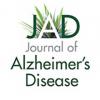9 November 2023
Sage Grows Research Portfolio by Acquiring IOS Press
Global independent academic publisher Sage has acquired IOS Press, an independent publisher founded in Amsterdam in 1987 that specializes in health, life, and computer sciences. With this move, Sage acquires nearly 100 journals and a frontlist of 70 plus books each year covering subjects such as neuroscience, medical informatics, cancer research, artificial intelligence (AI), data science, and the semantic web.
16 October 2023
Personalized Coaching Decreases Cognitive Decline in Early-Stage Alzheimer’s Disease Patients
Supplementing the standard of treatment for Alzheimer’s disease patients with personalized lifestyle coaching leads to less cognitive decline compared to standard of treatment alone, according to an ISB-led two-year study. The results were published in the Journal of Alzheimer’s Disease.
28 September 2023
Experts Present Pioneering Vision on Reducing Brain Disorders by 2050
A special supplement to the Journal of Alzheimer’s Disease, published by IOS Press, presents insights and new directions in both basic and clinical research into neurodegenerative diseases. Because by 2050, the number of people suffering from brain disorders is estimated to reach 155 million, now is the time to think innovatively to discover new pathways for future brain studies.
28 August 2023
Eat your vegetables to protect your brain
A new study published in the Journal of Alzheimer’s Disease by a Virginia Tech Carilion School of Medicine faculty member shows that brain levels of dietary lutein, zeaxanthin, lycopene, and vitamin E in those with Alzheimer’s disease are half those in normal brains. Higher dietary levels of lutein and zeaxanthin have been strongly linked to better cognitive functions and lower risk for dementia or Alzheimer’s disease.
24 August 2023
2023 JAD Editorial Board Update
To keep our JAD editors, authors, and readers informed of JAD's progress and development, the journal hereby shares the 2023 editorial update, which includes highlights such as the best-viewed papers of 2022, the most popular press releases, and journal statistics such as the turnaround times and submission rates.
21 August 2023
Several vaccines associated with reduced risk of Alzheimer’s disease in adults 65 and older
Prior vaccination against tetanus and diphtheria, with or without pertussis (Tdap/Td); herpes zoster (HZ), better known as shingles; and pneumococcus are all associated with a reduced risk for developing Alzheimer’s disease, according to new research from UTHealth Houston.
15 August 2023
Older women at risk for Alzheimer’s disease may benefit from yoga
Researchers at UCLA Semel Institute for Neuroscience and Human Behavior, using a type of MRI that measures activity in regions and subregions of the brain, found that Kundalini yoga, which combines movement and meditation and focuses on breathing, mantra recitation and mental visualization, increased connectivity in an area of the brain that can be impacted by stress and is associated with memory decline.
7 August 2023
New Early Alzheimer’s treatment Shows Improvement in Cognition
Dr. Heather Sandison, a leading expert in Alzheimer's Disease and Related Dementia (ADRD) care, has recently published a groundbreaking study in the Journal of Alzheimer's Disease, highlighting significant improvements in cognitive function among individuals with cognitive decline. The study is the second to employ a multimodal, individualized care plan and offers further hope for managing and potentially reversing cognitive impairment.
7 August 2023
FSU researcher finds potential new tool for early identification of dementia risk
Research at the Florida State University College of Medicine has identified a potential low-cost method for predicting if a person is at risk of developing dementia. By analyzing data from nearly 13,000 subjects who participated in a long-term aging study, researchers found that an interviewer’s rating of a cognitively healthy person’s memory successfully predicted the likelihood of developing dementia over a 15-year period.
4 August 2023
Antioxidants & Redox Signaling: Celebrating Outstanding Contributions in Science
Scientific research has always been at the forefront of driving progress and innovation, transforming the way we understand the world around us. Within this vast landscape of knowledge, certain areas have stood out for their significant impact on human health and well-being.















